Product Dynamic Codes v.12
The tool to flexibly and automatically update product internal references
Advanced rules to construct product reference
Code positions for certain products might be empty: e.g. for services there is no sense to have a code part of the attribute 'material'.
Each position has rules to generate a code value. For example, for products made of aluminium it is '-AL', for products with material steel it is '-ST'. In order a code part is calculated for this product, there should be at least a single rule this product satisfies.
Screenshots
Product reference is updated according to coding rules
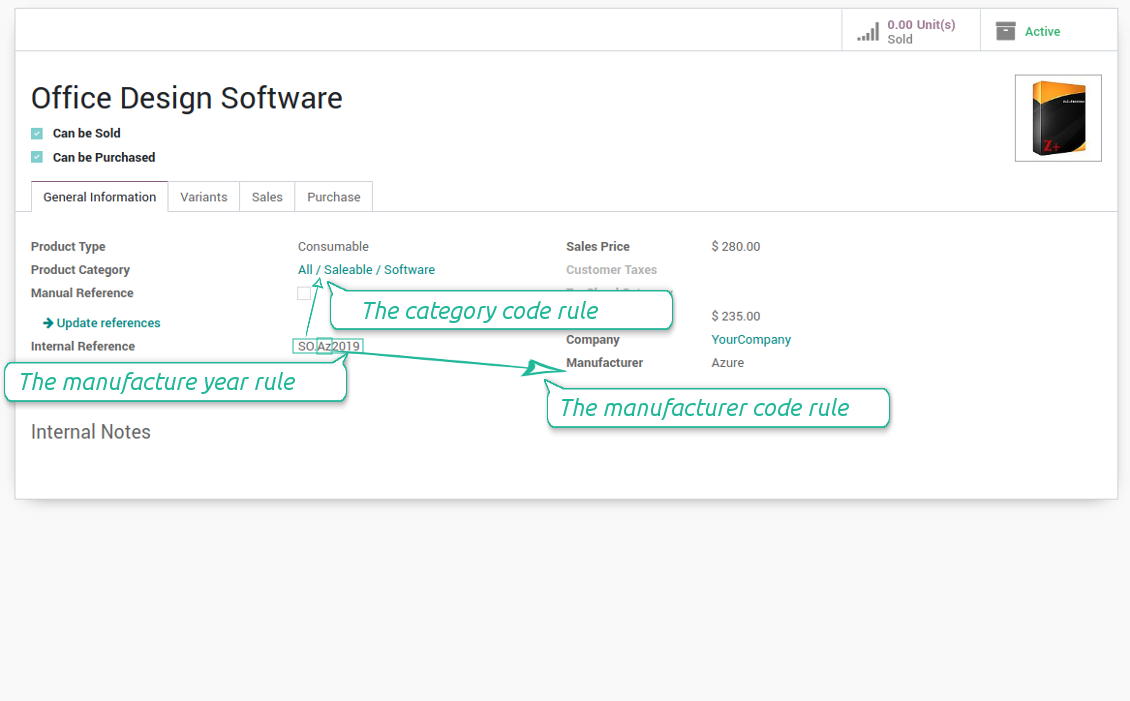
Have as many code positions (parts) as required
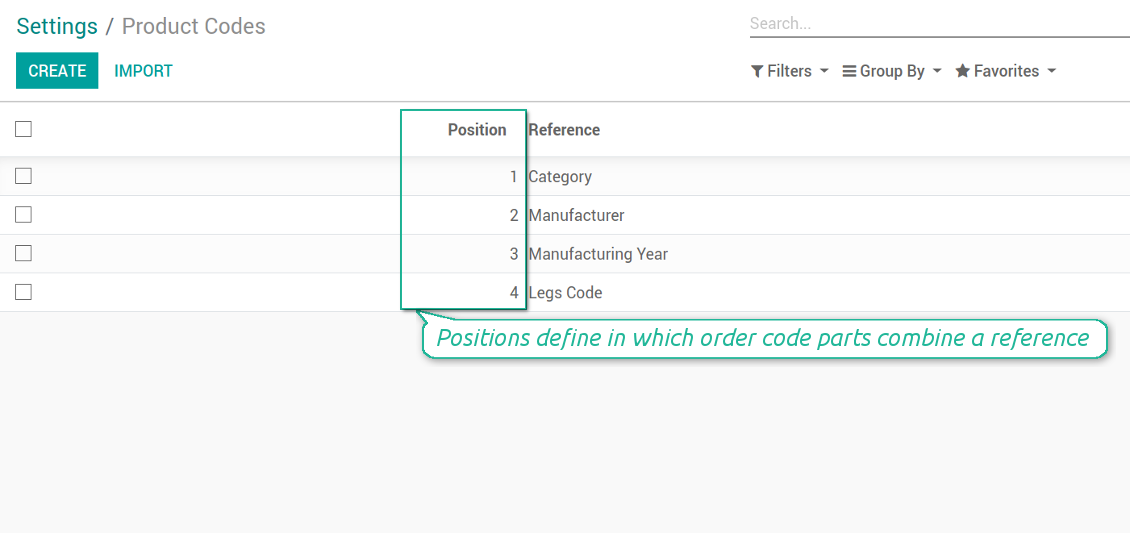
Flexibly configure rules to combine a product internal reference
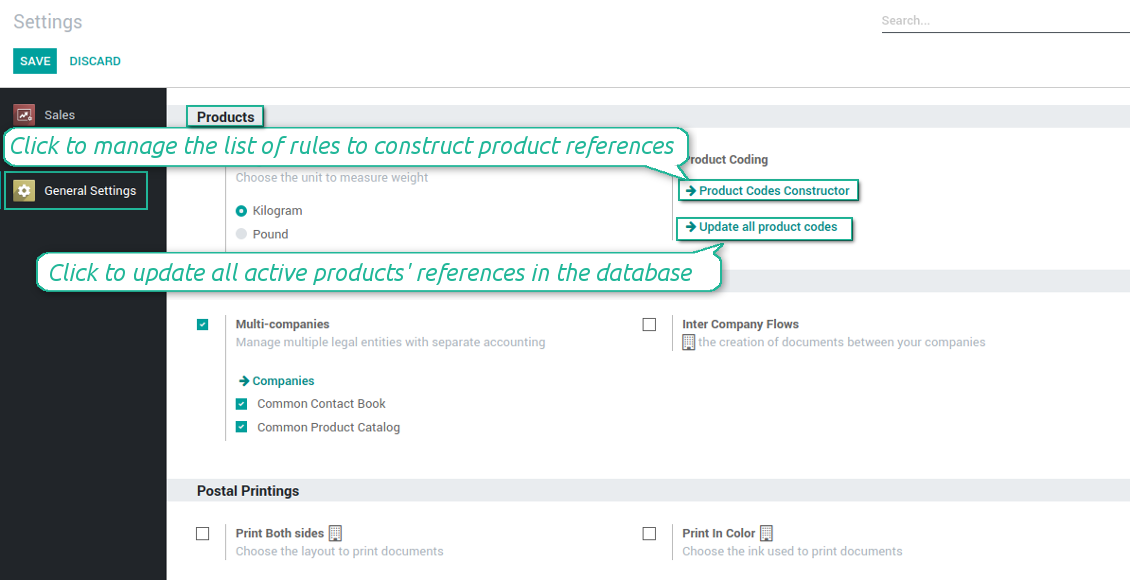
Static and dynamic code parts
How dynamic code parts work
- Use fields of a product variant and product templates
- Apply any field of the types: char, integer, float, date and date with time, selection, and many2one.
- Rely upon any standard or custom fields (e.g. manufacturer or manufacture date)
- In case of many2one field (e.g. a related product category) you should select its field (for example, category name or category custom code)
- Use not the whole field value, but its part. For instance, apply first 2 letters (0-1) of a category name or only month of a manufacture date (5-7). Leave '0' in both start and end to retrieve the whole field value
Screenshots
Use product field values to generate auto references
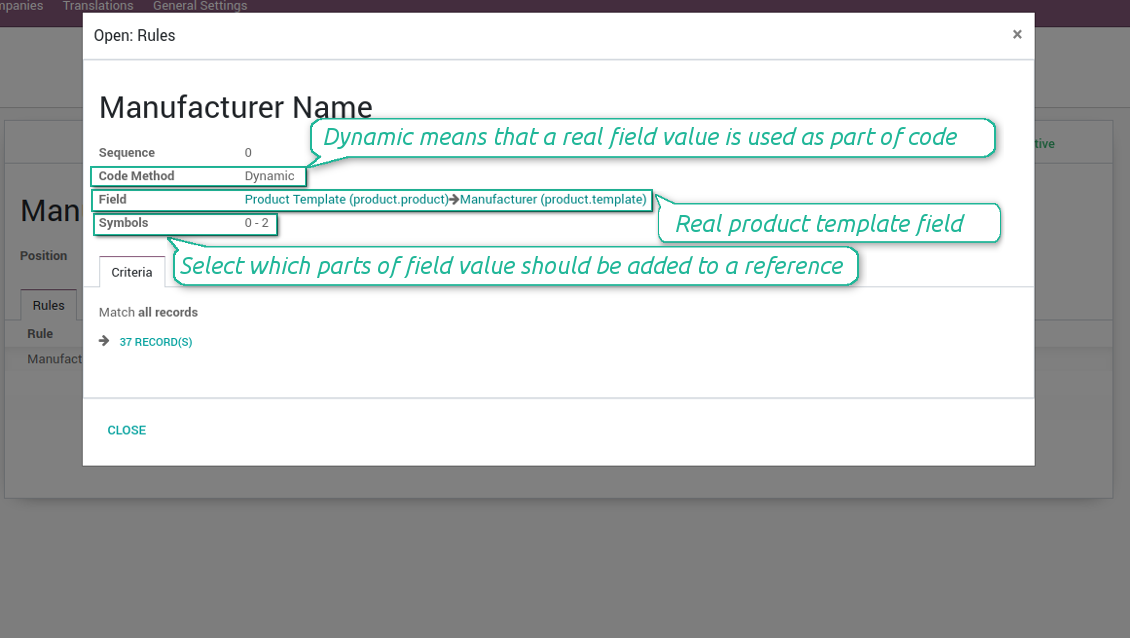
Apply static code parts based on products filtering
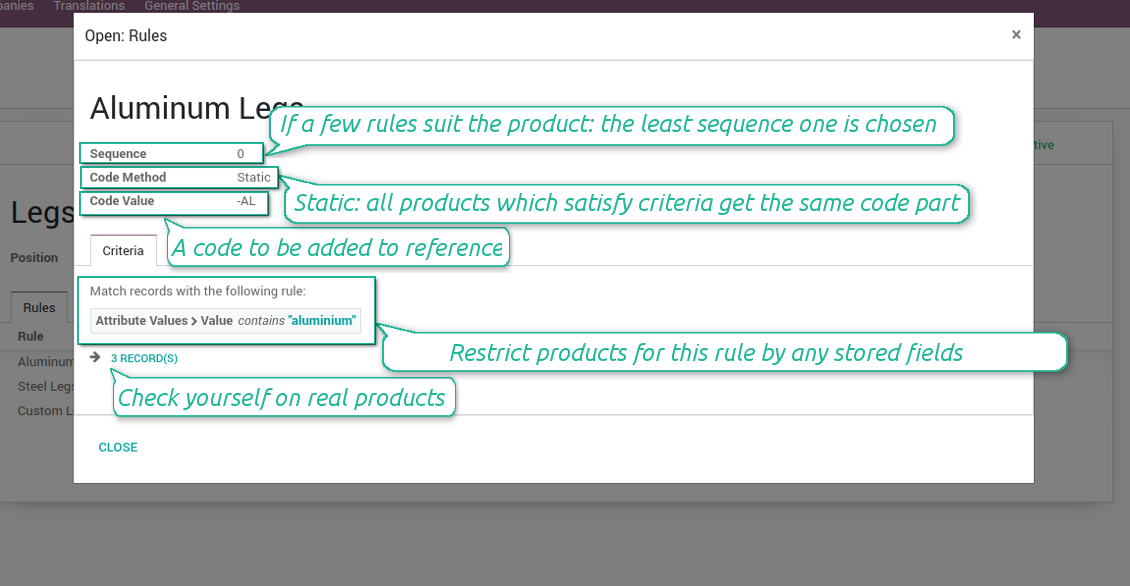
Code rule with filtering by categories
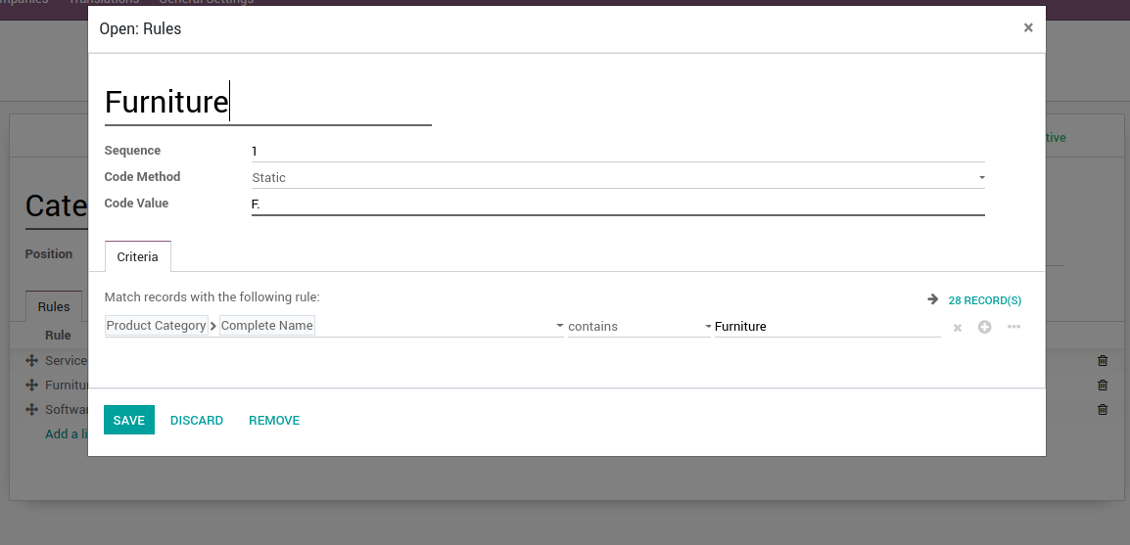
Product automatic reference (example)
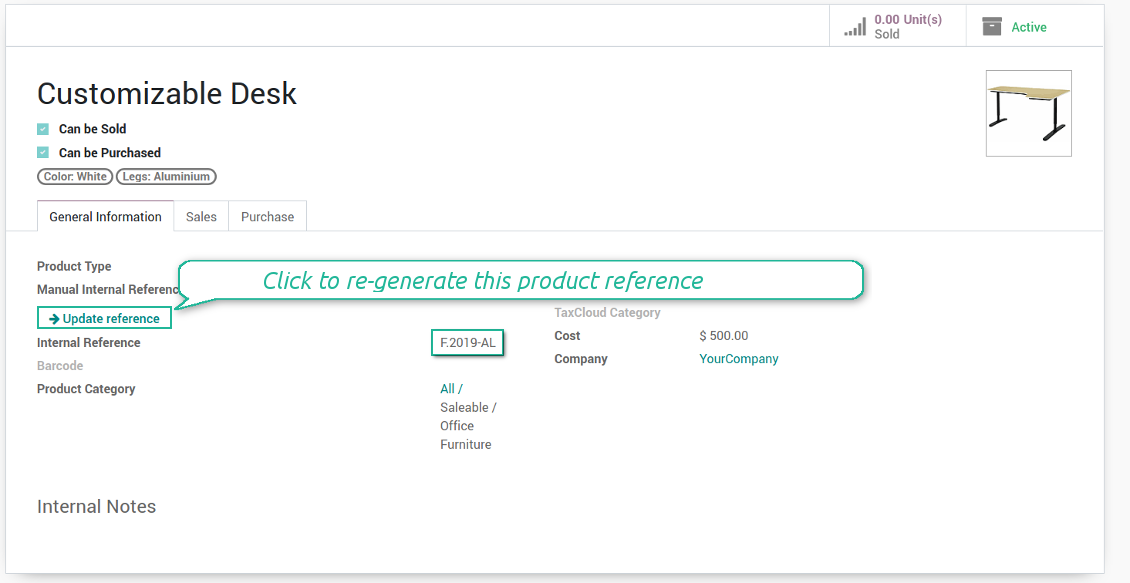
Automatic generation of codes
For certain product templates and variants you can switch the auto update off. If you mark items as 'Manual reference': their codes will be not generated by rules. References become editable for such products and should be updated by users.
When product references are updated
Codes are updated in the following cases:
- When a product is created or updated
- Regularly by the cron job for all products (have a look a the tab 'Configuration', the section 'Scheduled jobs')
- Manually when you push the button on a product form
- Manually for all products when you push the button on the configuration page
Why the logic is so complex? To avoid slowdowns. The point is that codes rules are advanced and there is no way to define recalculation triggers. Generating codes on fly would result in low performance. That is why to make sure codes are generated, Odoo regularly look over all products.
Screenshots
Exclude products from reference automatic updates
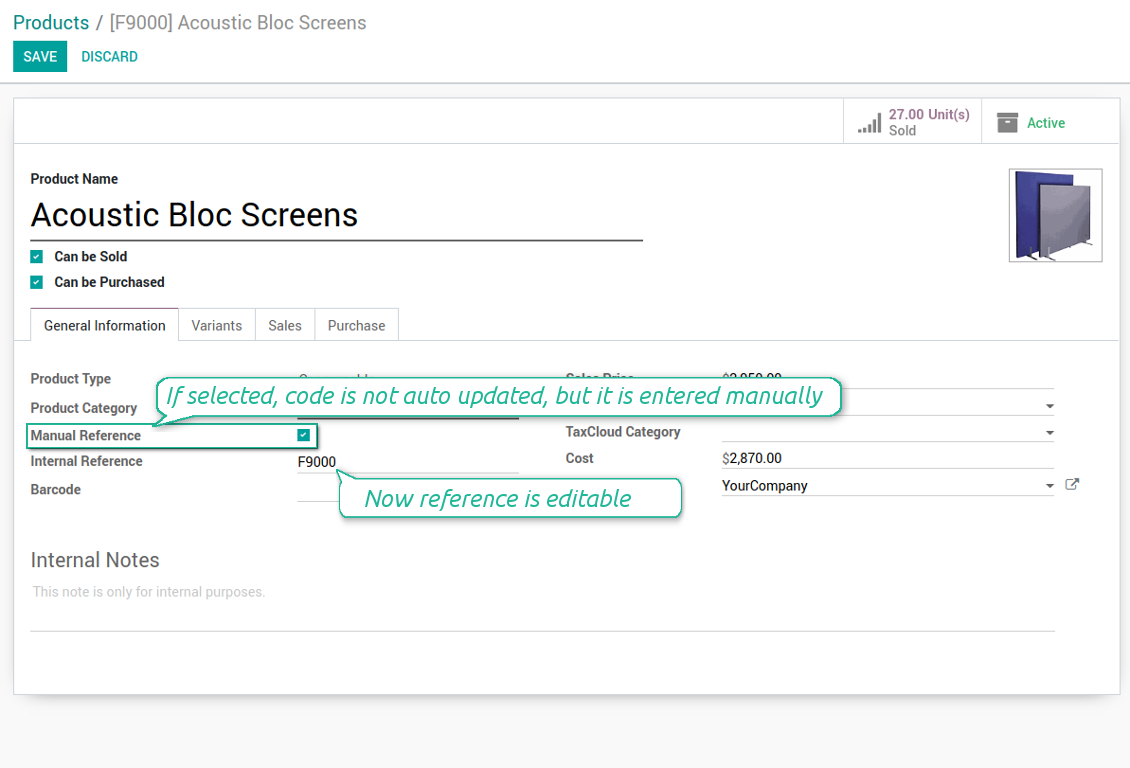
Coding relies upon standard Odoo tools
Product coding is global: rules are applied to each company in the same way. Simultaneously, you can restrict products in rules by using filters by company.
The right to define product coding rules belongs only to Odoo administrators.
Configuration and Installation Tips for Product Dynamic Codes Odoo v.12
Bug reporting
If you encounter bugs or inconsistent behavior, do not hesitate to contact us. We guarantee to provide fixes within 60 days of purchase and are intensely interested in improving our tools even after this period.
You do not need a phone number or credit card to contact us. You should only pass a short email sign-up, which does not take more than 30 seconds.
Please include as many details as possible in your request: screenshots, Odoo server logs, a full description of how to reproduce your problem, and so on. Usually, it takes a few business days to prepare a working plan for an issue (if a bug is confirmed) or provide you with guidelines on what should be done (otherwise).
Public features requests and module ideas (free development)
We are strongly motivated to improve our tools and would be grateful for any feedback. If your requirements are of public use and might be efficiently implemented, the team will include those in our to-do list.
Such a to-do list is processed regularly and does not assume extra fees. Although we cannot promise deadlines and final design, it might be a good way to get desired features without investments and risks.
You do not need a phone number or credit card to contact us. You should only pass a short email sign-up, which does not take more than 30 seconds.
The technical core to synchronize your cloud storage solution with Odoo
398€The tool to build deep and structured knowledge base for internal and external use. Knowledge System. KMS
248€The tool to set up KPI targets and control their fulfillment by periods
The tool to automatically synchronize Odoo attachments with OneDrive files in both ways
487€The tool for time-based service management from booking appointment to sale and reviews
The tool to automatically synchronize Odoo attachments with Google Drive files in both ways
487€The tool to configure variant prices based on attributes coefficients and surpluses
The tool to administrate vendor data about products, prices and available stocks